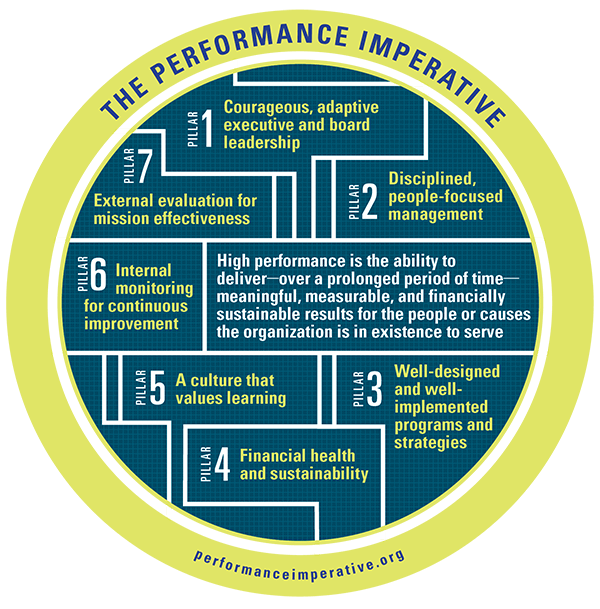Performance Management

The Superstar Foundation believes Superstars use performance management systems in
order to deliver improved outcomes for the individuals, families and communities we
serve and contribute to a stronger, more effective social service sector. Individuals
and organizations that consistently use data to understand the relationship between
their services and the outcomes of the participants they serve are in a position
to make better programmatic decisions and can adjust their approach as necessary
to continuously improve performance.
We know that high-performing individuals rarely work in a vacuum but are instead
often supported by the management, processes and resources of a high-performing
organization. Developed by a community of ambassadors, many of whom serve on the Superstar Foundation Board, the
Performance Imperative
defines high-performance as "the ability to
deliver, over a prolonged period of time - meaningful, measurable, and financially
sustainable results for the people or causes the organization is in existence to
serve." The Performance Imperative goes on to identify 7 Pillars that serve as
guideposts for High-Performing Organizations:
- Pillar 1: Leadership (The Pre-eminent Pillar)
- Pillar 2: Disciplined, People Focused Management
- Pillar 3: Well-designed and well-implemented strategies and programs
- Pillar 4: Financial Health & Sustainability
- Pillar 5: A Culture that Values Learning
- Pillar 6: Internal Monitoring for Continuous Improvement
- Pillar 7: External Evaluation for Mission Effectiveness
While not all Pillars may be equally weighted or achieved, we know that Superstars
and super
results are most often associated with High-Performing organizations which hold
true to these pillars - in practice and intention.
Seven of the Superstar Foundation's Board Members are Leap Ambassadors; all are committed to the purpose of promoting higher performance in the non-profit sector.



